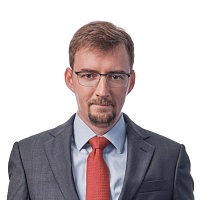
The protracted crisis in relations between Russia and the West, which escalated sharply in 2022, led to a radical restructuring of Russian economic ties with the outside world. Unprecedented Western sanctions have largely excluded Russia from the system of global financial transactions, “reset” Russian participation in the international division of labour, and caused irreparable damage to a large number of supply and value chains. The dollar and the euro have become “toxic” currencies for Moscow. Russian business is actively looking for alternative markets for its exports, as well as new import suppliers. The financial authorities are working to create reliable channels for financial transactions with friendly countries. The breakdown of Russia’s economic relations with the West has transcended virtually all historical precedents of the past few centuries. Apparently, this process of rupturing will deepen. Political considerations now predominate over economic pragmatism. The colossal damage does not stop the further drift of Russia from the West or the West from Russia.
The new situation gives rise to both local and global questions. The local Russian angle contains a number of urgent problems: how quickly will Russia be able to build a system of relations with China, India, Turkey and a number of other countries, bypassing Western-centric institutions and practices? To what extent will the system of such relations be protected from Western interference in the form of secondary sanctions or other punitive measures? What are the chances for a reboot of Russian industry and the innovation sector? What lessons should Russia learn from the experience of Iran, China and other countries that are also under pressure from Western sanctions? What should be the vector of further development of Eurasian economic integration?
The global angle refers to issues that are less urgent, but more fundamental in the long run. To what extent will the current politicisation of US leadership in global finance undermine confidence in the US dollar? How great are China’s chances of becoming an alternative financial centre and building a Sino-centric system of financial and economic relations? Will such a system be beneficial to Russia? Are there any chances for the US, EU and other players to absorb the current political shocks for the global economy and maintain their dominant positions? Will they be strong enough to contain China’s technological growth? How will the growing political tensions between Washington and Beijing affect the global economy and finances?
These and other questions will be at the centre of the Economic Statecraft programme in 2023. Along with analytical comments and Valdai Papers for the Club’s website, two major events are planned for 2023.
The first is the Valdai Club session at the St. Petersburg International Economic Forum, titled “Political Economy in a World Without Superpowers: The Global Economic Consequences of Political Turbulence.”
The second is the conference “Flowers Through Asphalt: World Development Experience Under Political Restrictions”.
Valdai Club’s thematic reports will be prepared for both events.
This programme is a special project of the Valdai Club and continues the Russia and Global Security Risks Programme.